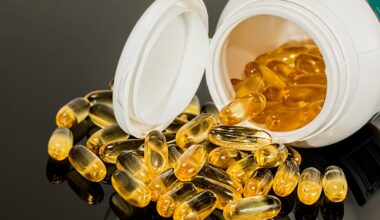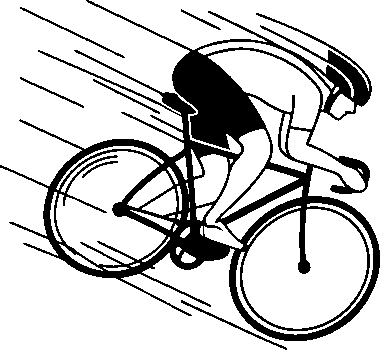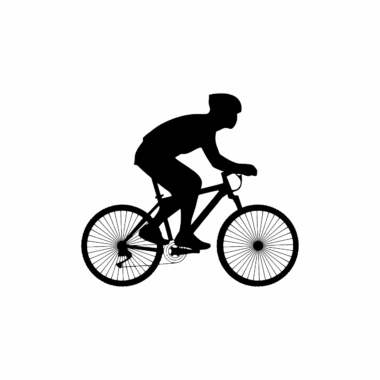The Physiology of Recovery in Competitive Cycling
Recovery plays a crucial role in competitive cycling, as it allows athletes to recuperate and adapt after intense training sessions. Physiological processes involved in recovery include the removal of metabolic waste, muscle repair, and the replenishment of glycogen stores. Cyclists should incorporate active recovery sessions that promote blood flow, aiding in nutrient transportation to muscles. Effective recovery strategies involve nutritional considerations, such as protein intake to enhance muscle repair, and carbohydrates to replenish energy. Hydration is also essential to facilitate recovery and prevent dehydration, which can severely impact performance. Furthermore, adequate sleep is fundamental; during sleep, the body undergoes various restorative processes. Techniques such as stretching, foam rolling, and massage therapy can also promote muscular relaxation and reduce soreness. Listening to one’s body is essential during recovery periods, as it can help prevent overtraining and injuries. Incorporating rest days into training programs helps ensure that cyclists maintain optimal fitness levels and performance. The combination of these recovery strategies can significantly improve overall cycling performance, allowing athletes to compete effectively and maximize their potential.
In competitive cycling, understanding muscle physiology is vital for effective recovery strategies. Muscle fibers experience micro-tears during high-intensity workouts, necessitating repair and rebuilding. The process involves satellite cells, which play a role in muscle regeneration. Additionally, inflammation is a natural response post-exercise, marked by discomfort and soreness. It is essential to manage this inflammation through specific recovery protocols, as excessive inflammation can hinder recovery. Cyclists often use ice baths and contrast water therapy to control inflammation and promote circulation. Nutritional strategies also play an essential role in recovery, emphasizing the need for protein and antioxidants. Foods rich in omega-3 fatty acids, such as fish, can help reduce inflammation and support recovery. Additionally, complex carbohydrates are critical for glycogen replenishment post-exercise. Supplements such as branched-chain amino acids (BCAAs) can also aid recovery and reduce muscle soreness. Furthermore, employing mental recovery techniques like visualization and mindfulness can enhance overall recovery effectiveness. Cyclists need to not only focus on physical recovery but also nurture psychological well-being to improve performance and maintain motivation throughout rigorous training cycles.
Recovery Time Frames
Recovery time frames vary depending on the intensity and duration of cycling sessions. Following high-intensity interval training (HIIT), cyclists may require longer recovery periods than after moderate rides. Ideally, understanding individual recovery needs is crucial for optimizing training plans. For example, endurance-focused cyclists might recover quicker after moderate rides, while those engaging in intense efforts may face muscle fatigue that necessitates up to 72 hours for recovery. Factors influencing recovery time encompass fitness levels, diet, sleep quality, age, and overall health. It’s essential for athletes to monitor how their body responds to different workouts, adjusting training loads accordingly. Using tools like heart rate variability (HRV) can provide insights into an athlete’s recovery state. Active recovery days consisting of light cycling can aid the body in recovering while maintaining fitness. Additionally, the incorporation of recovery technologies, such as compression garments or electrical stimulation devices, could potentially enhance recovery processes. By prioritizing the right balance between training and recovery, cyclists can ensure they remain competitive and healthy throughout their training cycles and competitions.
Adequate nutrition plays a key role in the recovery process for competitive cyclists. Proper nutritional timing, especially post-exercise, significantly impacts recovery outcomes. Athletes should focus on consuming protein and carbohydrates within two hours post-workout to optimize glycogen replenishment. A ratio of 3:1 carbohydrate to protein is often recommended to achieve this goal effectively. Foods such as smoothies containing fruits, yogurt, and protein powder make excellent recovery snacks. Additionally, hydration management through electrolyte replenishment can also aid recovery; athletes should consume fluids containing electrolytes to maintain balance after intense rides. Supplementing with vitamins and minerals can further support recovery and performance. Antioxidants from fruits and vegetables mitigate oxidative stress, which can hinder muscle recovery. Nutritional strategies differ per individual, as cyclists have unique preferences and dietary restrictions. Athletes are encouraged to develop a tailored nutrition plan that accommodates personal tastes while still ensuring adequate nutrient intake. Regular consultations with sports nutritionists can provide tailored advice and enhance recovery processes. Ultimately, effective nutrition can significantly enhance a cyclist’s ability to recover and perform consistently at high levels.
Psychological Aspects of Recovery
The psychological aspects of recovery in cycling are often overlooked yet are equally vital. Mental fatigue can significantly affect performance, making psychological recovery just as essential as physical recovery. Engaging in mental relaxation techniques such as meditation or yoga can help restore mental energy after intense training. Visualization exercises help athletes mentally prepare for upcoming races, building confidence and promoting a strong competitive mindset. Additionally, the importance of maintaining a positive outlook during recovery periods cannot be overstated. Practices that foster mindfulness can reduce stress levels, enabling cyclists to recover mentally and emotionally. Setting realistic goals assists in maintaining motivation throughout the recovery process, ensuring athletes stay engaged and empowered. Social support from teammates and coaches can also significantly enhance the psychological recovery process. Engaging in group activities or support sessions allows athletes to share experiences and gain encouragement during challenging training cycles. Moreover, athletes can benefit from reducing performance-related anxiety through effective communication and supportive relationships within their environment. An integrated approach to recovery that addresses both physical and psychological components is essential for optimal results in competitive cycling.
Utilizing technology can substantially enhance the recovery process for competitive cyclists. Wearable devices that monitor heart rate and sleep patterns can provide valuable data on recovery progress. Such information allows cyclists to adjust training loads according to their body’s needs. Furthermore, emerging technologies like cryotherapy, infrared therapy, and electrical stimulation are gaining popularity for recovery enhancement. Cryotherapy has shown promising results in decreasing inflammation and muscle soreness, while infrared therapy may promote blood circulation. Additionally, electrical stimulation can be employed to relieve muscle tension and expediting the recovery process. Utilizing recovery apps also aids cyclists in tracking their recovery strategies, ensuring they adhere to essential routines. Data analysis provided by these applications enables athletes to fine-tune their approach based on performance metrics and subjective feelings. Integrating technology into recovery regimens is becoming increasingly important in a sport where performance margins are minimal. Continuous advancements in recovery technology provide innovative solutions that cater to individual needs. Effective recovery technologies complement traditional strategies, creating a comprehensive and effective recovery framework for competitive cyclists.
Conclusion: The Importance of a Holistic Approach
In conclusion, a holistic approach to recovery in competitive cycling is indispensable for optimal performance. This involves understanding the interplay between physiological, nutritional, psychological, and technological aspects of recovery. Cyclists who prioritize recovery strategies can prevent injuries while maximizing their training efforts. Developing personalized recovery regimens that include adequate sleep, proper nutrition, mental relaxation techniques, and utilizing recovery technologies can significantly enhance recovery outcomes. Furthermore, fostering a supportive environment through teammates and coaches creates a positive atmosphere conducive to recovery and motivation. It is essential to regularly assess recovery methods and their effectiveness, adjusting them to meet the evolving needs of the athlete. A continuous cycle of training and recovery enables cyclists to adapt to their training loads while ensuring they remain competitive. Adopting a structured recovery process strengthens both mental and physical well-being, equipping cyclists to face the demanding nature of their sport. Ultimately, embracing all facets of recovery will allow athletes to perform at their best and sustain long-term success in cycling, benefiting both themselves and their teams.





